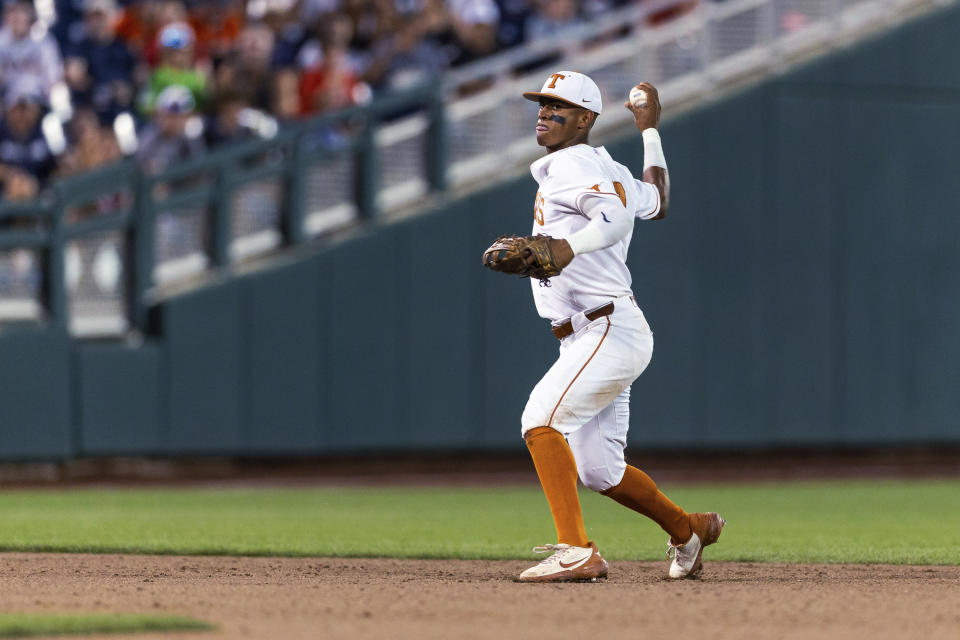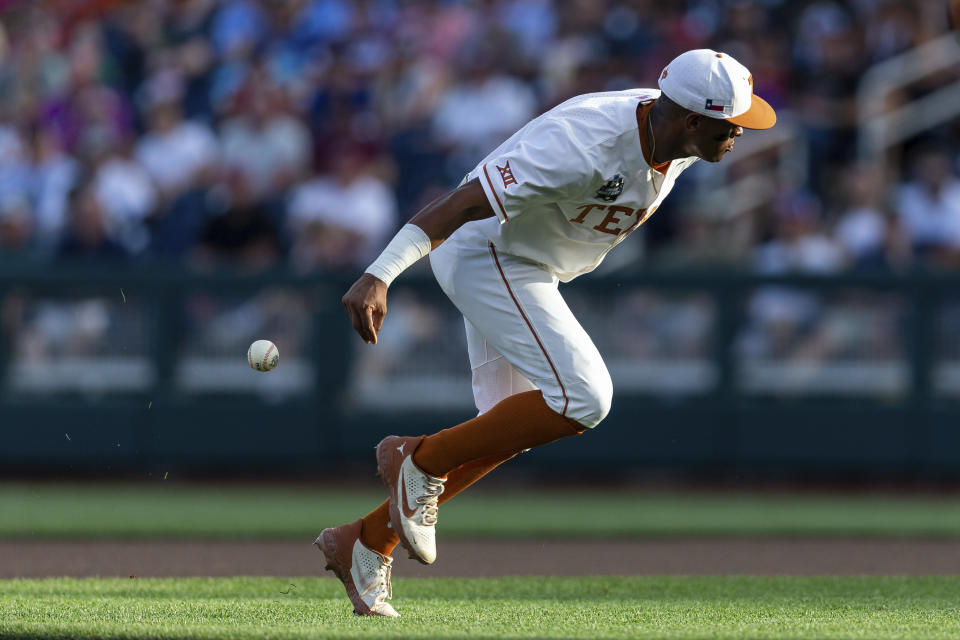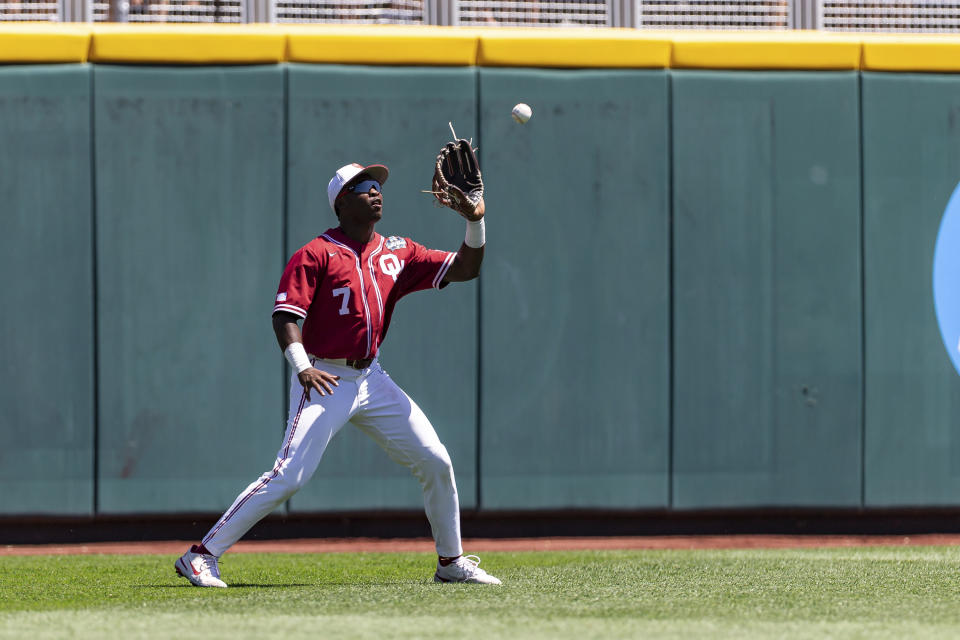College baseball intent on increasing Black players, coaches
OMAHA, Neb. (AP) — Anthony Holman is the highest-ranking NCAA official at the College World Series and the man in charge of the Division I baseball championship.
Holman is Black, and when he watches the games, he doesn't see many people who look like him on the field or in the dugouts.
“I pay attention to it for sure,” he said, “and it's disappointing. To have eight teams and maybe have a dozen or so folks of color, I think that’s something we should look to increase for sure."
Baseball remains one of the least racially diverse college sports. There were fewer than two dozen Black players — and no Black head coaches or assistant coaches — among the eight teams that made it to the College World Series.
Of the 279 Division I teams not from historically Black colleges and universities, only 4% of players, 1% of the head coaches and 1% of assistant coaches were Black in 2021, according to the most recent NCAA research. While coaching staffs have remained mostly white with rare exception, the number of Black players at non-HBCU Division I schools went from 236 in 2012 to 434 in 2021.
“We have seen an uptick, and it’s much needed,” said Holman, NCAA managing director of championships and alliances.
Including HBCU teams, there were 665 Black players last year compared with 505 in 2012. As recently as 2014, there also were more white players (255) than Black (221) at HBCUs.
There will be four Black head coaches at non-HBCU schools in 2023, up from two this season.
Elton Pollock has been at Presbyterian for 18 years and Edwin Thompson for two years at Georgetown after five seasons at Eastern Kentucky. Kerrick Jackson was hired at Memphis last month, and Blake Beemer was announced as Butler's new coach Tuesday.
Holman said he sees the hiring of Black head coaches as an important step when it comes to bringing more Black players into the game.
“If you don’t identify with a coach or other players, if you can’t see it, it’s tough to believe it,” Holman said. “We don’t want to lose a generation of players because there’s no path or no role model or no images for them to see.”
Jackson, the Memphis coach and chairman of the American Baseball Coaches Association's Diversity in Baseball Committee, said his priorities are to generate funding for more programs aimed at introducing the sport to Black children, especially between the ages of 6 and 10, and developing a Black coaching pipeline at the high school and college levels.

 Yahoo Autos
Yahoo Autos 



